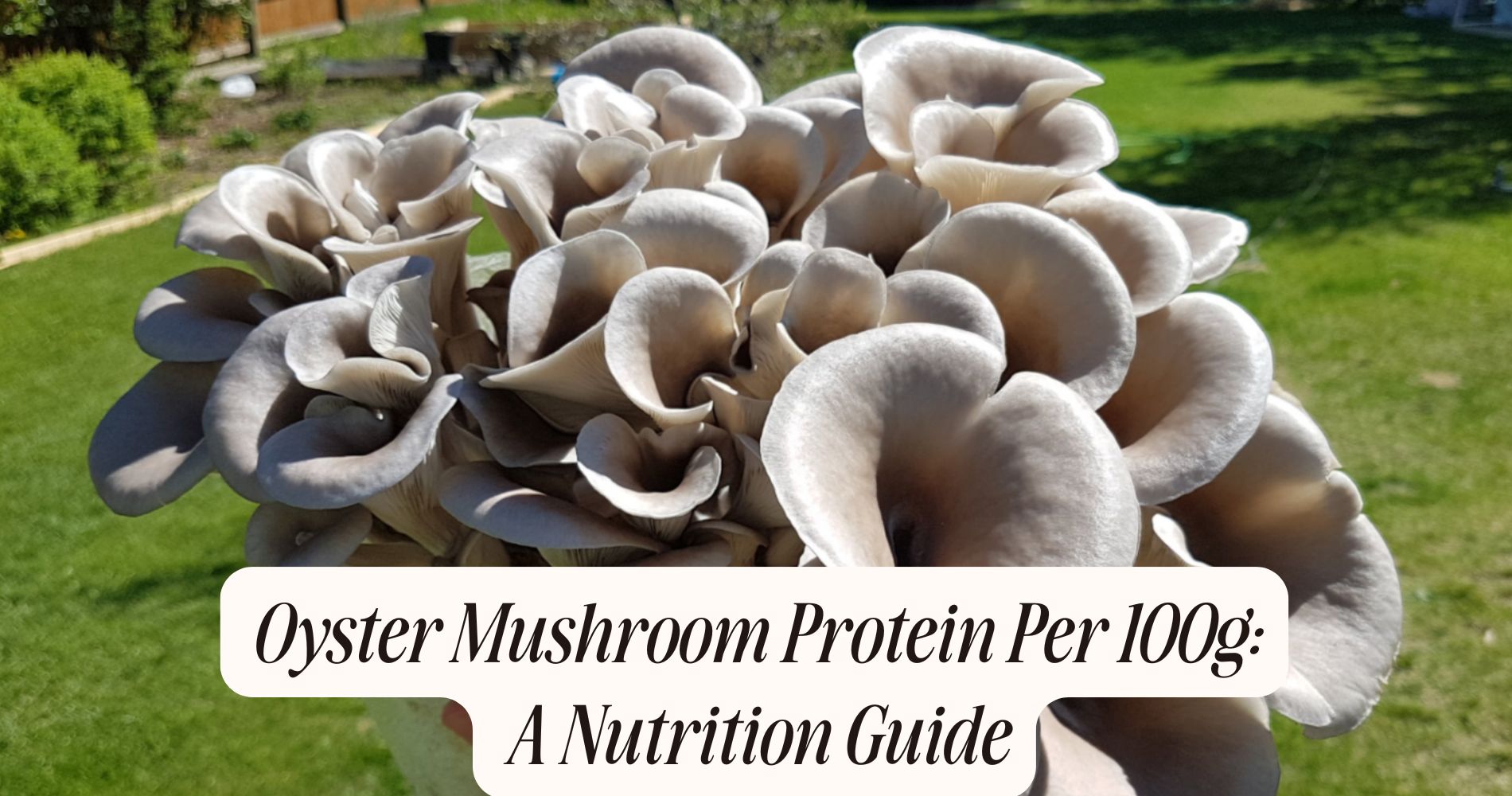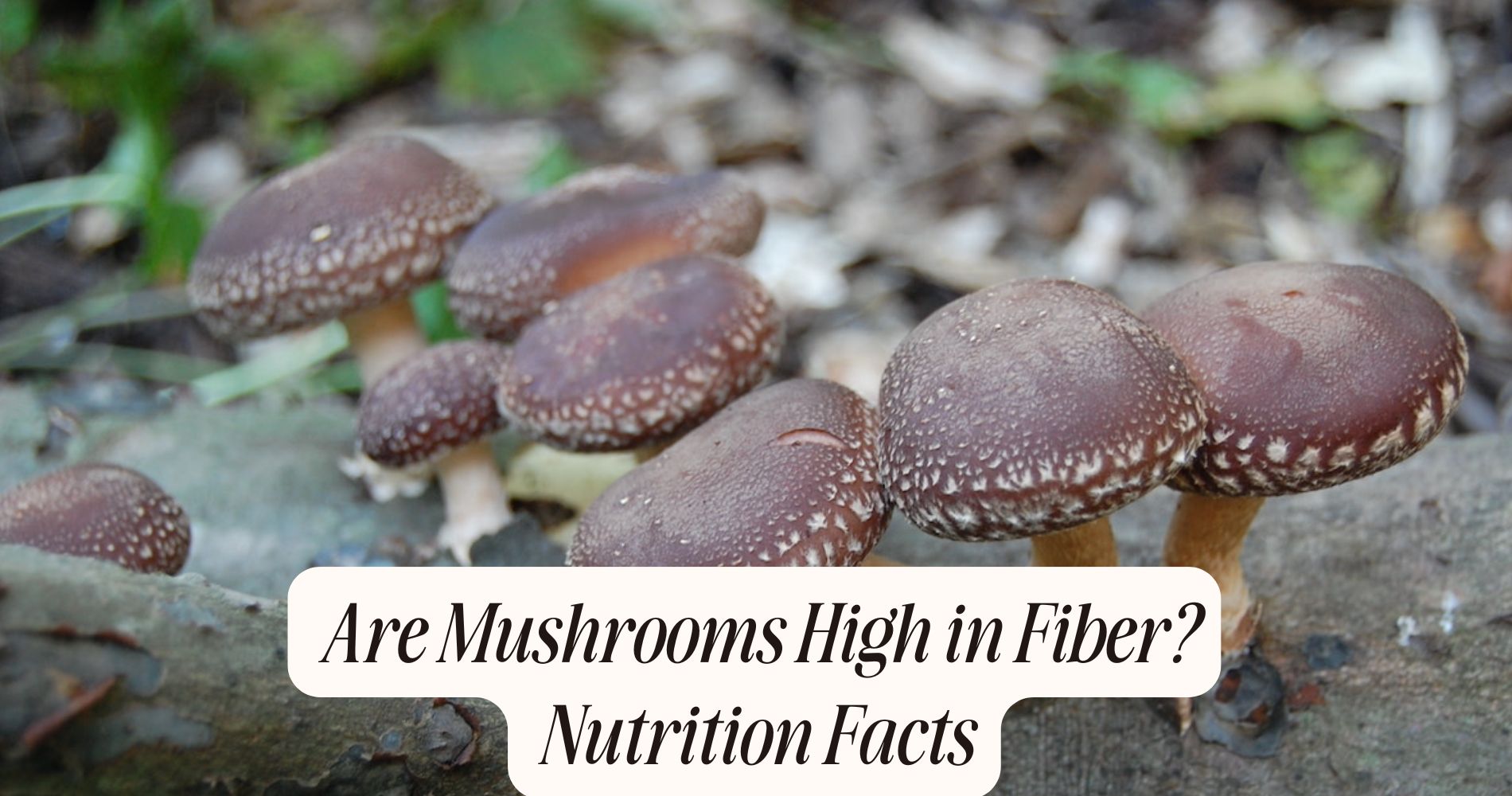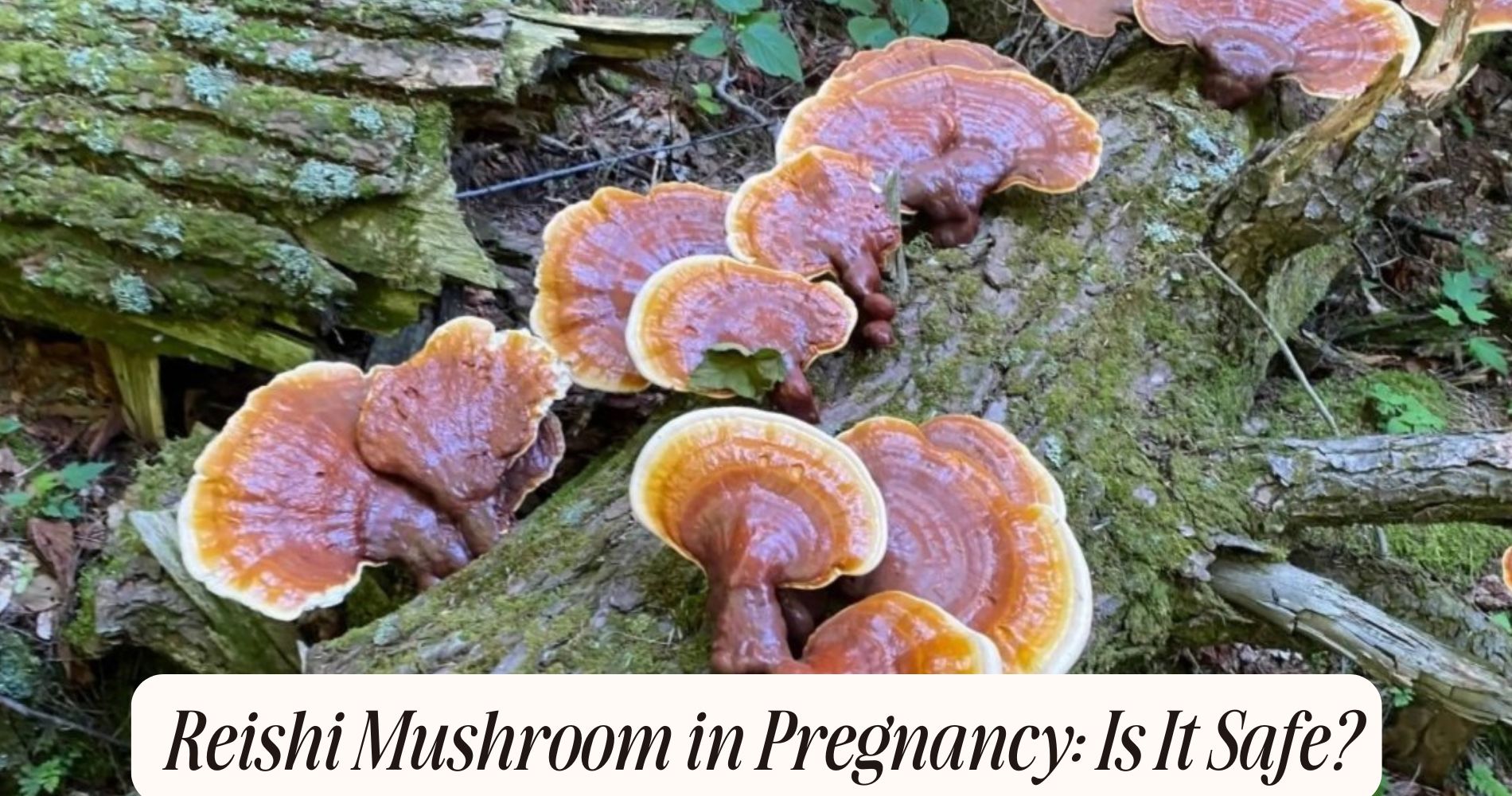
Oyster Mushroom Protein Per 100g: A Nutrition Guide
Oyster mushroom protein per 100g sits at an impressive 3.3 grams, making these fungi a valuable plant-based protein source for those pursuing a low-calorie, nutrient-rich diet. Beyond protein, oyster mushrooms contain essential amino acids that support muscle repair, immune health, and overall wellness. Their light calorie load and sustainable nature also make them an excellent alternative to animal proteins. Dive deeper to discover why oyster mushrooms deserve a regular spot in your meals.
Understanding Oyster Mushroom Nutritional Composition
Oyster mushrooms, a versatile ingredient in culinary dishes, boast a remarkable nutritional profile that merits a closer look.
You'll find these fungi rich in essential nutrients, offering a robust contribution to dietary fiber intake. With approximately 2.3 grams of dietary fiber per 100 grams, they play an important role in promoting gastrointestinal health by enhancing bowel regularity and supporting microbiota diversity.

The fibrous content aids in satiety, potentially aiding in weight management. Beyond fiber, oyster mushrooms are a source of significant micronutrients, including niacin, riboflavin, and folate, which are critical for metabolic functions.
Their low-fat content and balanced carbohydrate composition make them an excellent choice for a nutrient-dense diet. Consider integrating oyster mushrooms for their multifaceted nutritional benefits.
Comparing Protein Content of Oyster Mushrooms
When evaluating the protein content of oyster mushrooms, you'll find they provide an impressive source of plant-based protein. With approximately 3.3 grams of protein per 100 grams, they offer a substantial boost to your dietary intake.
In a nutritional comparison with other protein sources, oyster mushrooms emerge as a superior choice for those seeking low-calorie, nutrient-dense options. While legumes and nuts typically contain higher protein levels, oyster mushrooms excel in their low-fat content and presence of essential amino acids.
Their protein profile supports muscle health and contributes to a balanced diet. Consequently, incorporating oyster mushrooms into your meals can effectively complement other protein sources, enhancing your overall nutritional strategy without the caloric burden often associated with other foods.
Health Benefits of Oyster Mushrooms
Although often overlooked in favor of more traditional vegetables, oyster mushrooms offer a multitude of health benefits that merit attention. Rich in bioactive compounds, these fungi play a pivotal role in immune support. They contain beta-glucans, which are polysaccharides known to enhance the activity of macrophages and natural killer cells, vital components of your immune system.

In addition, oyster mushrooms exhibit robust antioxidant properties. High concentrations of ergothioneine and selenium combat oxidative stress by neutralizing free radicals, thereby reducing cellular damage.
Studies indicate that regular consumption may mitigate inflammation and bolster overall health. By integrating these mushrooms into your diet, you can harness their scientific advantages, potentially improving immune function and reducing the risk of chronic diseases.
Incorporating Oyster Mushrooms Into Your Diet
If you're looking to enhance your diet with nutrient-dense foods, introducing oyster mushrooms can be both a versatile and healthful choice.
These fungi are an excellent source of protein, vitamins, and minerals, making them a valuable addition to any meal plan. For meal ideas, consider incorporating oyster mushrooms into stir-fries, where they can absorb flavors while maintaining a firm texture.
Additionally, they can be sautéed and added to salads or grain bowls, providing a savory boost. For recipe suggestions, try creating a mushroom risotto or including them in a vegetable omelet for a protein-rich breakfast.
Evidence suggests that their bioactive compounds may contribute to health benefits, enhancing their appeal as a dietary component. Embrace this nutritious ingredient for a balanced diet.
Cooking Tips for Oyster Mushrooms
To maximize the nutritional benefits of oyster mushrooms, understanding their cooking properties is essential. Their delicate texture and umami-rich profile make them ideal for specific sautéing techniques.
Use a moderate heat, as excessive temperatures can degrade their protein content and diminish their nutritional value. Begin by heating a small amount of olive oil or butter until shimmering, then add the mushrooms in a single layer for even cooking. Avoid overcrowding the pan to guarantee they become golden and tender.
Effective flavor pairings enhance their taste while preserving nutritional integrity. Consider incorporating garlic, thyme, or soy sauce, which complement the mushrooms' natural umami.
Scientific evidence suggests these combinations not only elevate flavor but may also support nutrient absorption, making your dish both delicious and beneficial.
Oyster Mushrooms vs. Other Plant-Based Proteins
While mastering cooking techniques enhances the flavor and nutrient retention of oyster mushrooms, understanding their nutritional profile compared to other plant-based proteins is equally important.
Oyster mushrooms offer approximately 3.3 grams of protein per 100 grams, making them a moderate source in the plant protein comparison. They contain essential amino acids like leucine and valine, critical for muscle repair and metabolism.

Unlike legumes or grains, mushrooms are low in carbohydrates, appealing to those seeking a low-carb protein source. Additionally, oyster mushroom protein benefits include bioavailable nutrients such as B-vitamins and minerals like selenium.
When compared to soybeans or lentils, oyster mushrooms provide a unique nutrient spectrum, complementing a diversified plant-based diet without the common allergens found in other proteins.
Environmental Impact of Oyster Mushroom Cultivation
Although often overlooked, the cultivation of oyster mushrooms exerts a noticeably lower environmental impact compared to traditional agricultural practices.
You can engage in sustainable farming by utilizing agricultural waste, such as straw or sawdust, as a substrate for mushroom growth. This waste utilization not only minimizes landfill contributions but also recycles nutrients back into the ecosystem.
Oyster mushrooms require less water and land area than conventional crops, reducing resource strain. Their ability to thrive on organic refuse highlights an efficient method to transform waste into valuable protein.
Furthermore, the carbon footprint of oyster mushroom farming is considerably lower due to reduced energy demands. By choosing to cultivate oyster mushrooms, you're contributing to a more sustainable and eco-friendly agricultural future.
Common Varieties of Oyster Mushrooms and Their Uses
Oyster mushrooms, with their diverse varieties, offer distinctive flavors and culinary applications that can enhance any dish.
The king oyster, noted for its robust texture, is ideal for grilling or sautéing, simulating a meaty consistency.
Pleurotus ostreatus, commonly referred to as the pearl oyster, exhibits versatility across various culinary uses, from soups to stir-fries.
Blue oyster mushrooms, with their striking hue, provide a mild flavor that complements delicate dishes.
Pink oyster mushrooms, with their vibrant color, carry a peppery note, making them suitable for bold recipes.
Golden oyster mushrooms, possessing a subtle fruity aroma, are perfect for adding a touch of sweetness to your meals.
Each variety contributes unique gustatory properties, enriching your gastronomic repertoire with scientific precision.
A Smarter Way to Get Your Mushroom Benefits
Want all the wellness benefits of mushrooms without the prep or cooking? Meet SUPER MUSHROOM GUMMIES by Well Gummies — the ultimate shortcut to functional health. Each chew is packed with a blend of 10 powerhouse mushrooms, including Oyster, Lion’s Mane, Reishi, and more. Designed to boost energy, sharpen focus, and support immunity, these vegan gummies are perfect for busy lifestyles. Plus, they taste like fresh wild berries — just like your favorite candy, but without the jitters or crash. Fuel your body and mind naturally, one delicious bite at a time.
Frequently Asked Questions
How Long Do Oyster Mushrooms Stay Fresh After Purchase?
You'll keep oyster mushrooms fresh for about 5-7 days post-purchase. For ideal freshness, store them in a paper bag in the fridge. This method controls moisture, preventing spoilage, according to evidence-based storage methods and freshness tips.
Are Oyster Mushrooms Safe for Pets to Consume?
You're considering pet safety regarding oyster mushrooms. Current evidence shows low mushroom toxicity in these fungi for pets. However, consult a veterinarian before introducing them to your pet's diet, as individual sensitivities may vary.
Can Oyster Mushrooms Cause Allergies or Sensitivities?
You might experience oyster mushroom allergies, though it's rare. Sensitivity symptoms can include respiratory issues, skin rashes, or gastrointestinal discomfort. If symptoms arise, consult a healthcare professional for detailed analysis and evidence-based guidance on potential sensitivities.
What Is the Ideal Storage Condition for Oyster Mushrooms?
You should store oyster mushrooms at an ideal temperature of 0°C to 4°C. This best oyster mushroom storage condition maintains their freshness, slows spoilage, and minimizes bacterial growth, ensuring a longer shelf life and quality retention.
Do Oyster Mushrooms Grow Year-Round or Seasonally?
You can cultivate oyster mushrooms year-round using controlled environments, though they exhibit seasonal growth patterns in nature. Ideal conditions for indoor cultivation include regulated temperature, humidity, and light, ensuring consistent yields regardless of external seasonal variations.
Conclusion
Incorporating oyster mushrooms into your diet offers a nutritious boost, providing a substantial protein source alongside essential vitamins and minerals. Compared to other plant-based proteins, oyster mushrooms stand out for their unique amino acid profile and health benefits, such as supporting cardiovascular health and immune function. Cooking them is versatile and environmentally sustainable, making them an ideal choice for eco-conscious consumers. Explore different varieties to add diversity and depth to your meals while contributing positively to your health and the planet.




